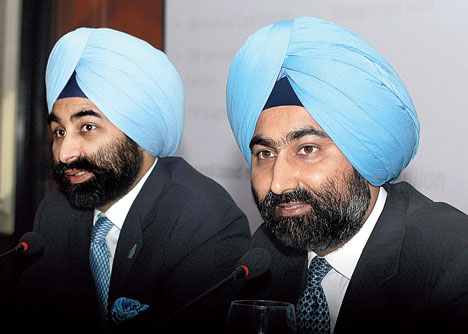
New Delhi: North Block and the Reserve Bank may appoint a committee to examine the rise in bank charges in the wake of high court judgments and a spate of complaints in Parliament.
Around 21 state-run and three large private banks have collected about Rs 5,000 crore in 2017-18 from consumers for not maintaining the minimum balance in their accounts, according to finance ministry data.
The SBI alone earned Rs 2,433 crore, while HDFC Bank earned around Rs 590 crore as penalty. The SBI's minimum average balance requirement for its customers in metro cities is Rs 3,000, and HDFC Bank has a variable average balance requirement.
A few weeks back, the Chhattisgarh high court directed banks to ensure the charges levied on multiple transactions and other services be "uniform and reasonable".
Top North Block officials said the problem had arisen after the RBI stopped setting limits to the charges that could be levied on various counts, and banks started fixing such charges "arbitrarily".
An online petition by a number of financial sector analysts and not-for-profit organisations signed by over 2.8 lakh consumers being forwarded to RBI governor Urjit Patel has cited "unfair treatment that bank customers suffer in the form of frequent, arbitrary and one-sided increase in banking charges, or the refusal of banks to automatically pass on contractual benefits such as lower interest to those with floating rate home loans, or the rampant mis-selling of third-party products such as insurance".
The petition to Patel sought the "frequent increase in charges and billing customers by stealth through opt-out clauses that are not noticeable must be stopped immediately".
It gave the example of a leading bank levying charges for an invite-only programme, which assumes that the customer is already part of and willing to pay for the programme.
Officials admitted receiving complaints about banks, forcing one-sided loan and other agreements with the details buried in the fineprint. "These and a lack of following correct procedure often results in the consumer losing money," they said.
Banks often do not pass on lower borrowing costs or post the interest receivable on deposits to the survivors of a joint fixed deposit, resulting in delays and harassment. "Both the banking ombudsman as well as the finance ministry are burdened with large numbers of complaints, often forwarded by Parliamentarians in this regard," said officials.
Four years back, the RBI had issued a charter calling for five basic rights for customers, and asking banks to implement them - (i) Right to Fair Treatment; (ii) Right to Transparency; Fair and Honest Dealing; (iii) Right to Suitability; (iv) Right to Privacy; and (v) Right to Grievance Redress and Compensation.
However, officials admitted that most banks have not implemented it. The RBI too hasn't announced any guarantees on these rights or penalties on banks if they fail to adhere to the charter.
"The only recourse in such cases are courts as the banking ombudsmen have been a significant failure of the system," said Amit Bannerjee, an independent merchant banker dealing with East Asian funds.
Digital concern
Another matter of concern are the charges levied on customers who go digital. "Bank charges whether on cash usage or on electronic transfers have been going up as has the GST on these. Cumulatively, the impact on a consumer has gone up ... the ministry has been asked to look into this and we are thinking of ways to lower the burden on consumers," said officials.
Led by the SBI, most banks are charging a transaction fee on cash withdrawals either from ATMs or bank counters beyond the first four withdrawals in a month. At the same time, charges on electronic transfers have been rising after being capped or reduced post demonetisation two years back.










